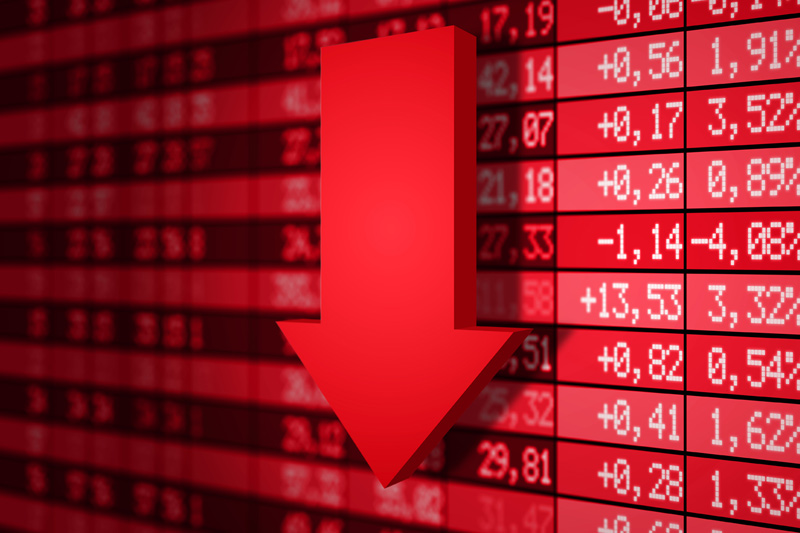By Tim McLaughlin and Ashley Lau
(Reuters) - Index fund managers are finding it hard to secure the bonds they need at the prices they want, forcing them to make trade-offs that can hurt investors and leave managers vulnerable in a market downturn.
Bond liquidity has all but dried up for corporate issues after new regulations and capital requirements forced Wall Street banks to slash their inventories of fixed-income products following the financial crisis. That's especially challenging for index fund managers who must acquire certain bonds - or at least broad swaths of bonds - to be able to track specific benchmarks.
The lack of liquidity also means funds may have trouble selling bonds in the event interest rates rise and the investors who have sunk about $1.2 trillion in net deposits into long-term bond funds since the end of 2004 head for the exits.
Bonds inventory at Wall Street banks has dropped to about $60 billion (36.6 billion pounds) from about $250 billion since the 2008 credit crisis, according to the Federal Reserve Bank of New York, making them harder to trade, analysts and fund managers said.
"The days where you can go out and say, 'I want these ten bonds' ... and get the Street to offer them to you, are probably gone," said Josh Barrickman, head of bond indexing at Vanguard Group Inc, which oversees $325 billion in index bond fund and ETF assets. "So now it's more, 'what can I get and are those suitable substitutes for what I actually want?'"
To combat the problem, Vanguard has relied on more fixed-income trading specialists to hunt for hard-to-get bonds that are best suited for building efficient index portfolios, Barrickman said. Index funds have less latitude than actively managed funds, whose managers are paid to beat benchmarks, not track them.
More corporate and municipal index funds are sampling the bonds contained in their benchmark instead of trying to approach full replication of the index. They also are going outside their benchmark index to find substitutes for hard-to-get bonds, said Steve Sachs, head of capital markets at ETF provider ProShares.
Sometimes the sampling can be extreme, producing returns that severely lag their index.
The $30 million Market Vectors Pre-Funded Municipal ETF holds only about 60 bonds, tracking a benchmark with more than 46,000 issues.
It offers a unique slice of the bond market of pre-funded municipal bonds, but high transaction costs have produced a 12-month return net of fees and expenses of 0.92 percent in the year ending Sept. 19, which is 23 basis points, or 20 percent, lower than the broad benchmark's return of 1.15 percent, according to Thomson Reuters data.
"There's plenty of room to find different names that satisfy our need," said Jim Colby, manager of the Market Vectors fund, which is operated by Van Eck Global in New York. "On the other hand, it makes the process more complex to sort through the scenarios."
Even funds holding larger percentages of their index can find their sampling cuts performance. The $617 million PowerShares Fundamental High Yield Corporate ETF has 257 bonds in its portfolio, compared with about 2,100 in its benchmark, and has lagged its benchmark by as much as 1.40 percentage points for a 12-month period within the past two years, according to ETF.com data. That's partly because it weighs its sample more heavily to high-quality bonds, which limits its yield.
BlackRock Inc, the world's largest asset manager, says rock-bottom interest rates and low volatility have created complacency among issuers and investors, and that the market for trading corporate bonds is broken.
"Driven by record new issue volume, the size of the market has grown substantially while the market's trading capacity has decreased," BlackRock said last week in a research paper made public on Monday. It's a perfect recipe for a bond market rout to whipsaw investors, one fund index manager said.
Meanwhile, many index bond funds are paying too much attention to building portfolios that are easy to trade. That doesn't mean they are doing an efficient job of tracking their benchmarks, said Dave Nadig, chief investment officer at ETF research firm ETF.com.
State Street Global Advisors' $9 billion SPDR Barclays High Yield Bond ETF gets high marks for having high yields and fees of 0.40 percent of assets invested, compared to 0.50 percent at a rival fund run by BlackRock. But the fund's tracking error - the difference between the return an investor receives and the benchmark's performance - has been twice its fees at times, according to ETF.com.
As of June 30, the junk bond ETF's 12-month median tracking difference was -0.72 percent, or six times higher than the -0.12 percentage points produced by BlackRock's $12 billion iShares iBoxx $ High Yield Corporate Bond ETF, according to ETF.com.
"JNK has been sloppy in its tracking over the past two years, so investors may find the all-in cost higher than advertised," ETF.com said in a research report.
Brian Kinney, an executive at State Street Global Advisors, said higher transaction costs due to the lack of liquidity on the bond market contributed to the junk bond ETF's wider tracking difference.
NEW REQUIREMENTS
Wall Street banks want to make more money per transaction because regulators' new capital requirements have made holding bonds on their balance sheets more expensive, Kinney said.
Even so, he said the State Street junk bond ETF tracks its benchmark pretty tightly, given how volatile that sector can be.
To be sure, though some index funds select bonds that allow them to outperform their indexes, it's more common for an index fund's tracking difference to lag its index because of the cost of running a fund that a benchmark doesn't have.
Nevertheless, index fund managers have always behaved a little like political pollsters who sample a small group of people to get a reading on a larger population.
Indexing giant Vanguard typically builds bond portfolios that come closest to having the same number of holdings as their benchmarks, fund disclosures show. The $121 billion Vanguard Total Bond Market Index Fund holds 6,730 bonds, compared to nearly 8,900 in its benchmark.
"I chuckle when people talk about a passive index bond fund," Nadig said. "There's really no such thing. There ain't much passive about it. These funds are constantly buying and selling."

(Reporting By Tim McLaughlin and Ashley Lau; Editing by Linda Stern and John Pickering)
